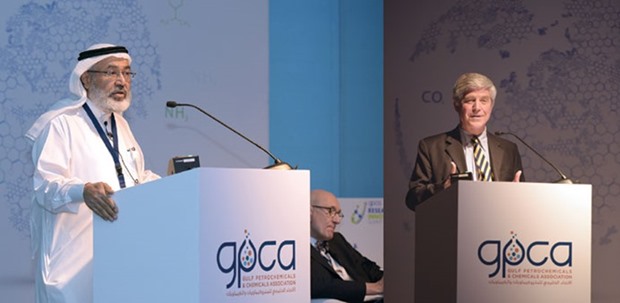The Gulf region’s petrochemical industry has now capacity in excess of 136mn tonnes, Gulf Petrochemicals and Chemicals Association (GPCA) has said in a report.
While there are challenges associated with a low oil price environment, companies in the GCC’s (Gulf Cooperation Council) petrochemical industry must use the current headwinds as an opportunity to evolve, advised experts at the ‘Research & Innovation Conference’ in Dubai, hosted by the GPCA.
“A certain degree of uncertainty exists and this will continue to be the case,” said Dr Moayyed al-Qurtas, chairman, GPCA’s Research and Innovation Committee, in his introductory address. “However, it hasn’t stopped the chemical industry to continue to invest in basic research capabilities in the past.”
The emergence of a home-grown petrochemicals industry in the GCC is one of the most impressive and unprecedented developments anywhere in the world,” continued al-Qurtas. “Petrochemicals enable other industries like plastics conversion, and sophisticated support industries like supply chain management, logistics and shipping. This industry not only leads to the emergence of more complex chemicals but also impacts everything in our economy.”
Looking ahead, the challenges for innovation include clear strategies. “How do we measure the value of innovation? This is the crucial,” al-Qurtas said. “After all, we don’t do things by faith alone as it requires a lot of thinking about the incremental and long-term value of investment.”
Meanwhile, global contemporaries highlighted the unforeseen opportunities associated with uncertain times.
“Innovation is about managing uncertainty, not eliminating it,” said Dr Tom Connelly, American Chemical Society chief executive officer. “The only way to eliminate risk is to shut down the whole operation, and that will not really result in anything positive especially if you have committed to the process.”
Connelly highlighted some instances wherein the market decline has led to unexpected benefits.
“DuPont, for example, invented polymers like nylon, teflon and neoprene during the ‘Great Depression’ in the US, and these products would remain profitable for the company for the next 50 years,” he said. “Hard times are good times for innovation and you should never waste a crisis as it is shown that differentiated product sales resist economic downturn.
“Innovation strategy must include the generation of intellectual property and a long-term investment strategy into research and development.”
The GPCA has previously reported on several key findings on innovation amongst the GCC’s petrochemicals industry. Investments in research and development (R&D) were estimated at $529mn in 2014.
This figure is nearly double than the $368mn expenditure in 2013 and is notable for being the highest increase in R&D spending in petrochemicals globally.
However, regional spending on innovation represents less than 1% of the global petrochemicals expenditure on R&D.
“There are many worthwhile solutions in addressing these challenges, including reduction in capital expenditure and better supply chain management,” said Dr Abdulwahab al-Sadoun, GPCA secretary general. “However, analysis has shown that R&D has the best return on investment, thereby demonstrating the importance on the innovative process. Over the last two days, we have seen experts from local and global companies; academia and government reaffirm their commitment on innovation at the GPCA Research and Innovation Summit. In these challenging times, the key to success will be putting these words into achievable plans, testing ideas in a marketplace and measuring the outcome.”

Al-Qurtas and Connelly: Value of innovation.
